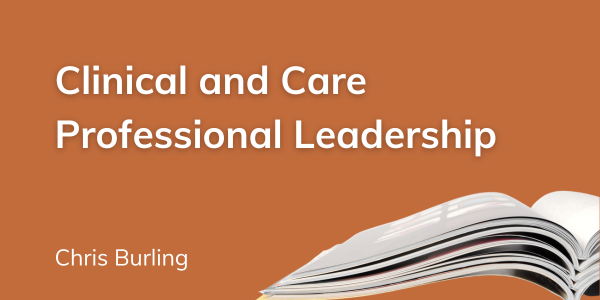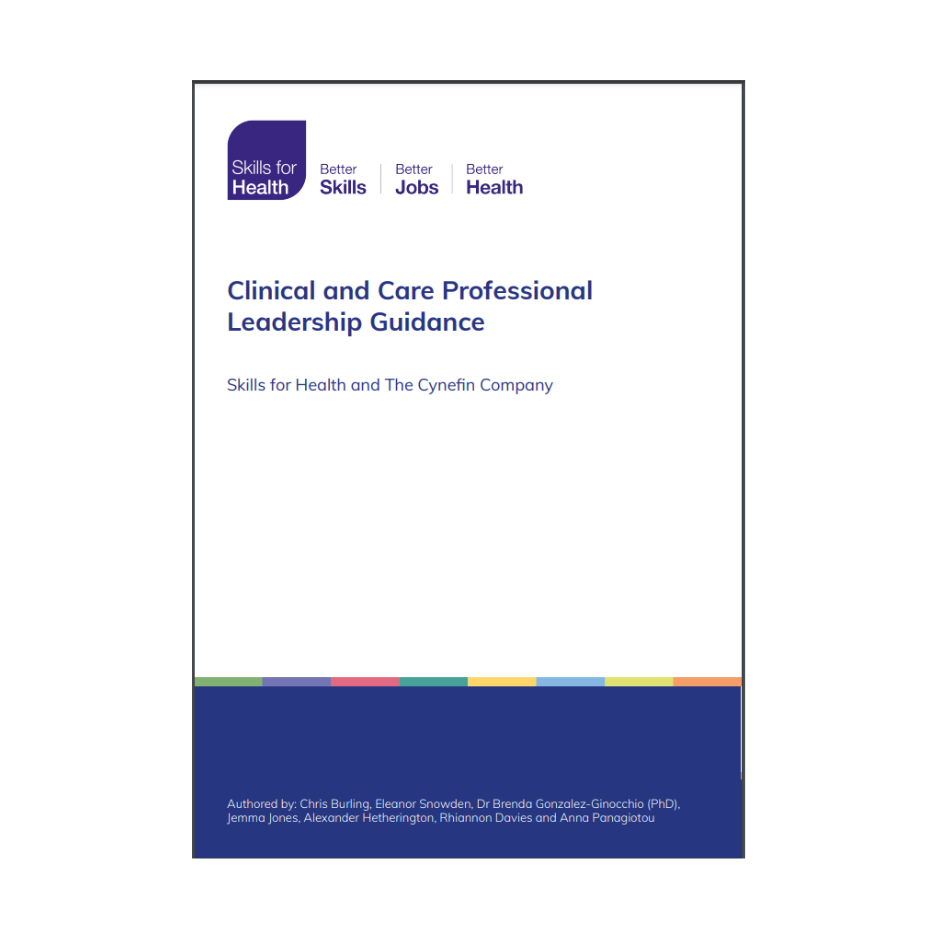
| 10 July 2023
Time is against the NHS. An idea that, although particularly prescient in its 75th year, is not new but remains important: our interpretation of time matters.
Launching the findings of the implementation of the Clinical and Care Professional Leadership guidance, I was reminded of the notion that time can be either the measure of movement, or the space in which movement takes place. To me, this report is illuminating because it captures a point in time, and the starting point, whilst also reflecting, in the experiences and stories, what has gone before.

As consultants and researchers, we know the value of time: in the way we allow for time, in describing the impact of time and in acknowledging the nature of time. In the NHS, time is a stick, a measure of quality, a need, a reflection and an eternal source of pressure.
In writing this summary introduction, I was drawn back into the particular time when we were collecting our data. For those few months, we witnessed energy, insight and enthusiasm from colleagues across the country and, as I returned to the report, I rediscovered once again the ambition that was so powerfully visible at the time. It can be easily forgotten when you leave the micro-level interactions of real people, working on real issues at a human level and revert to macro-level analysis and interpretations.
During this time, we saw nothing less than devotion to use time wisely, to imagine ways in which, in the future, there was more time to care, to nurture, to strengthen the health of places and people, and ways to find the time to do things differently. We also recognised time that had passed and how it informed so much of the present.
Around this point last year, the guidance towards effective implementation of the Clinical and Care Professional Leadership guidance had only recently been launched and the development of ideas and approaches across most ICSs was at an emergent stage. Against the backdrop of recovery, and the significant operational demands of the contemporary health and care environment, we were privileged to be able to spend a few months in the company of colleagues across all regions and in many ICSs as they developed their unique responses to the guiding principles.
As we developed the report, it was a time in which the need to pursue a greater diversity of talent, integration of disciplines and promotion of sustainable, healthy workforces were recognised and captured in an aspirational and co-created set of guiding principles.
That time is still here; not because the work has been unsuccessful, but because the nature of those challenges is so vast.
I hope that, in reading this, you will experience the same feelings of energy and ambition as I did, and the lessons learned, cases, stories and recommendations act in some way to reinforce the power of collective and system-orientated change, rooted in a diverse workforce representative of the communities they serve and a curiosity towards what works and what could work better.
Our findings in this comprehensive report were the result of many conversations, and we remain convinced that the content and case studies that were captured remain relevant and valuable. At its heart, our research was always about the experience of and attempts to change.
Our ambitions are stated clearly in the introduction of the report: to provide a collection of stories, ideas and experiences that could support the design of a local framework to form the backbone of a future-focused model of clinical and care professional leadership, and we hope that the report:
- acknowledges the important role of multi-agency, multi-professional and multidisciplinary working in seeking to address the complex, contemporary environment of health and care.
- provides a stimulus for systems to explore, challenge and in some cases reimagine the role of leadership, and the structures that influence its practice.
- highlights the opportunity presented through engaging with staff and patient communities that is focused on equity and inclusion throughout the system.
As we worked with colleagues undertaking this work, we were convinced by three consistent messages:
- This is complex work, with no standard model of practice.
- Not all of the stories, experiences and reflections on progress are positive, and much of the work required is rooted in the conflicting tensions and complex relationships that are inherent to the delivery of health and care.
- The complexity of the work is consistently matched by the investment in time, energy and commitment of those undertaking the development of a clinical and care professional leadership plan.
It was our hope that by taking these three themes into consideration, the content of this report reflects more than a collection of individual cases and contributed to the growing sense of community and shared purpose that we have experienced.
Over the subsequent 12 months, we have seen ICSs further progress their ideas. For many, the stage of development has moved from ideas to implementation; as expected, more robust plans are taking effect, activities are evolving and appointments into CCPL roles have been made.
However, we also know that the CCPL guidance is positioned as both an ongoing challenge and opportunity of iteration, experimentation and progress, and we know that this is framed within the context of an NHS that remains complex and uncertain. We acknowledge in our findings the consistent fear that, despite the rhetoric around system change and greater parity of esteem and place-led approaches, governance structures may continue to reflect traditional, medically-dominant models. There is, unquestionably, much more to explore in this, but our conclusions are designed to reflect this ongoing pursuit of alternative and challenging approaches to health and care.
In returning to the theme of time, we hope to have created some for you, and we hope that what we have used, has been done so wisely.
We continue to work with colleagues in the NHS to explore the stories behind change, and the opportunities for change, and look forward to developing this series on the implementation of clinical and care professional leadership in ICSs across the country.
